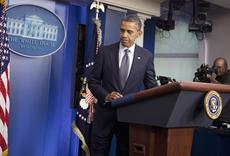preet_singh
a¯n¯i¯m¯a¯l¯_¯l¯o¯v¯e¯r¯

President Obama's sudden announcement today that he will follow through on withdrawing all U.S. troops from Iraq by the end of the year produced a number of immediate questions that may take years to answer.
Such as: Can Iraqi security forces protect a fragile government from insurgents?
And: What about Iran?
Deputy National Security Adviser Denis McDonough said the administration is confident that the U.S. has sufficiently trained their Iraqi counterparts, their top goal of recent years.
"Over the course of the last seven or eight months, a full review of where we stand with the Iraqis -- one assessment after another about the Iraqi security forces -- came back saying these guys are ready; these guys are capable; these guys are proven," McDonough said.
Some Republicans are challenging Obama's decision for a complete withdrawal over the next two-and-a-half months.
"President Obama's astonishing failure to secure an orderly transition in Iraq has unnecessarily put at risk the victories that were won through the blood and sacrifice of thousands of American men and women," said Mitt Romney, one of the GOP presidential candidates.
He added in a statement: "The unavoidable question is whether this decision is the result of a naked political calculation or simply sheer ineptitude in negotiations with the Iraqi government. The American people deserve to hear the recommendations that were made by our military commanders in Iraq."
Sen. John McCain, R-Ariz., who lost the 2008 election to Obama, said he "respectfully" disagrees with the Iraq decision, and that it "will be viewed as a strategic victory for our enemies in the Middle East, especially the Iranian regime, which has worked relentlessly to ensure a full withdrawal of U.S. troops from Iraq."
CAPTIONBy Evan Vucci, AP
Iran is accused of assisting insurgents in its neighboring country of Iraq.
McDonough said global pressure is building on Iran on issues ranging from its nuclear program to terrorism. "I think what you're seeing is in the first instance an Iran that is weaker and that is more isolated," McDonough said.
There are concerns about "Iran's unwillingness to live up to its obligations," McDonough said.
"But," he added, "we don't have concerns about our ability to make sure that the Iraqis can exercise the kind of sovereignty that they want."
